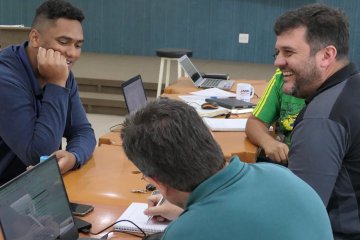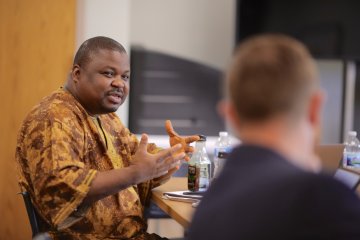Getting PhDs to the Mission Field
 Darren Carlson
Darren CarlsonSeminaries and graduate schools around the world are asking for PhD holders to come as missionaries and teach Bible and theology. I know of one major seminary in Europe that posted its openings in a major evangelical magazine, only to find no takers. Why is this and how can we help?
“Seminaries and graduate schools around the world are asking for PhD holders to come as missionaries and teach Bible and theology. I know of one major seminary in Europe that posted its openings in a major evangelical magazine, only to find no takers.”
Why They Are Hard to Find
1. God has not called them. This is simple enough. To go to another culture with your spouse and kids usually requires God to uproot you in some way that is so clear that you believe God is leading you to the field.
2. Some think raising money is below their degree. I only write this because I have heard it so often. Raising support is for the M.Div. students, so I have been told. It is for the staff of some campus ministry or for helping orphans and those on the margins of society. I know of many that would rather work at Starbucks or UPS than ask people for their support to go overseas.
3. It is a career killer, or, more specifically, an inhibitor. They can't participate at ETS/SBL. Their library (if they have one) is more limited. The education level of the students (in some cases) is at a much lower level than what they find in the US (though that seems to be changing for the worse here). Their colleagues might not be as educated and able to provide them helpful feedback or sharpening of one's own skills.
4. It may involve learning ANOTHER language. Most PhD students have learned Greek, Hebrew, German and French, and now they are asked to teach it all in another language. This is a real challenge. After spending years toiling with participles, who wants to spend another 2-3 years trying to master Japanese in order to teach Greek when your mother tongue is English?
5. They don't have very many friends who can support them. One reality that faces graduates is that in the last six years they have probably lived in three different locations, and in each locations they probably did not make a lot of friends. They have spent a lot of time in libraries or have probably only gotten to know their fellow classmates.
6. They can still teach modular classes overseas without leaving their job in the US.
7. Debt. Plain and simple, going to school costs a lot of money. Very few escape with a PhD and less than $45K in school loans from the various institutions they have attended (at least in my experience).
How the Church Can Help
1. Pray God calls them (or me or you). There is such a great need for well-trained, godly, pastoral cross-cultural teachers.
2. Challenge the belief that fundraising is not for them. Have them read Steve Shadrach's Viewpoints. It could be that one of the reasons people have a hard time asking for support is because they do not think the people around them are generous. That is fair. That means we should be even more open in our generosity and encourage them to go by pledging our support.
3. Seminaries in the west must talk to students about the global Church and do so often. It is not enough to talk about it in the Missions 101 class. It should permeate all of our classes. Maybe seminaries should offer some full-ride scholarships to students interested in teaching in developing countries.
4. Churches should talk about being missional not just in their community but around the world. They should also disciple these students and get them into small groups with people in the church who are not theology students, but serving the Lord in different career paths.
5. Create a way to get rid of the debt. I have prayed that some donor would come to TLI or set up on their own a fund that would pay off the debt of PhDs if they committed to 5 years of service overseas. Medical doctors have a program like this. I believe this incentive would unleash many into service. I am thankful for places like Bethlehem College and Seminary that are focused on keeping the costs low.
I am sure there are many reasons people do not go and many more ways we can help them. This is just a starting point.
Darren Carlson serves as the International Director and Founder of Training Leaders International. He founded TLI in 2009 and continues to advance its mission of strengthening churches worldwide through theological education. Darren holds two master's degrees from Trinity Evangelical Divinity School and a PhD from the London School of Theology. You can connect with him on X.



